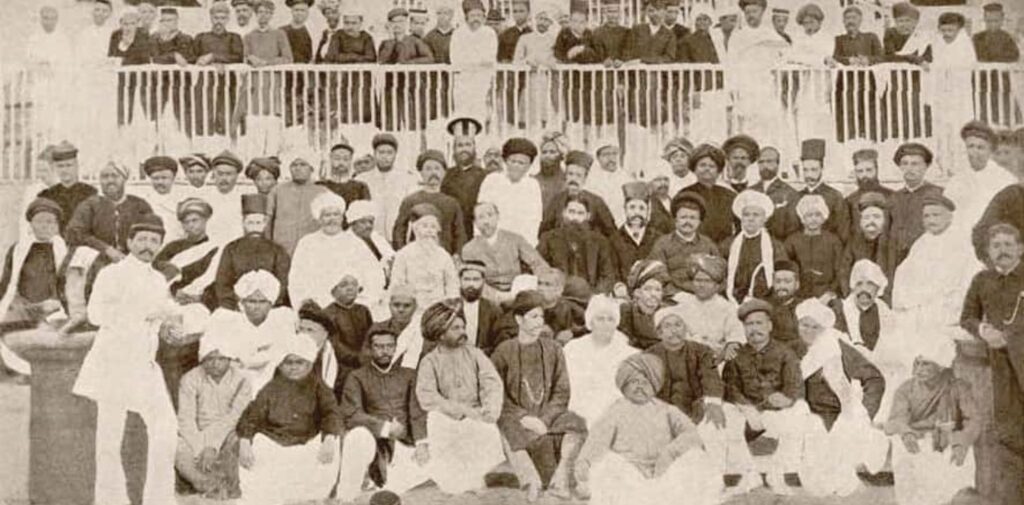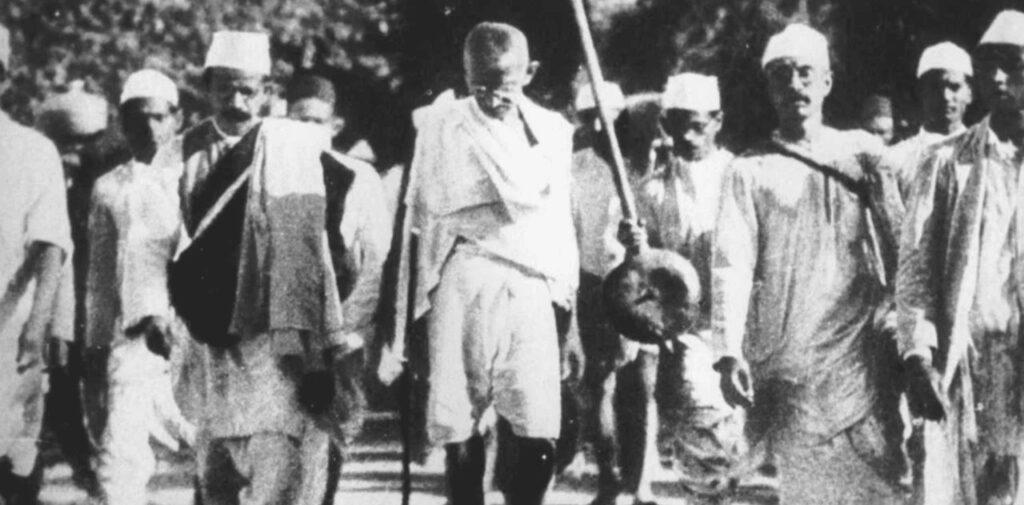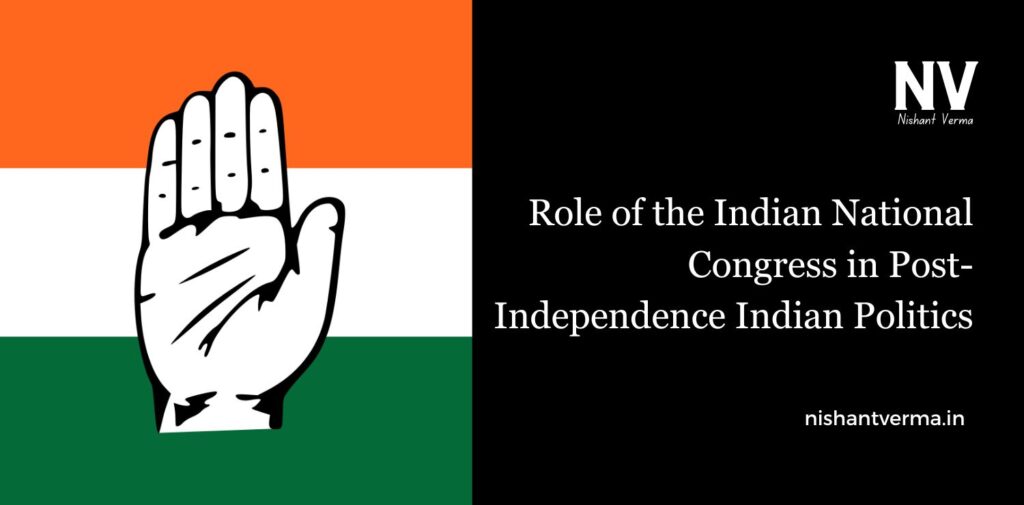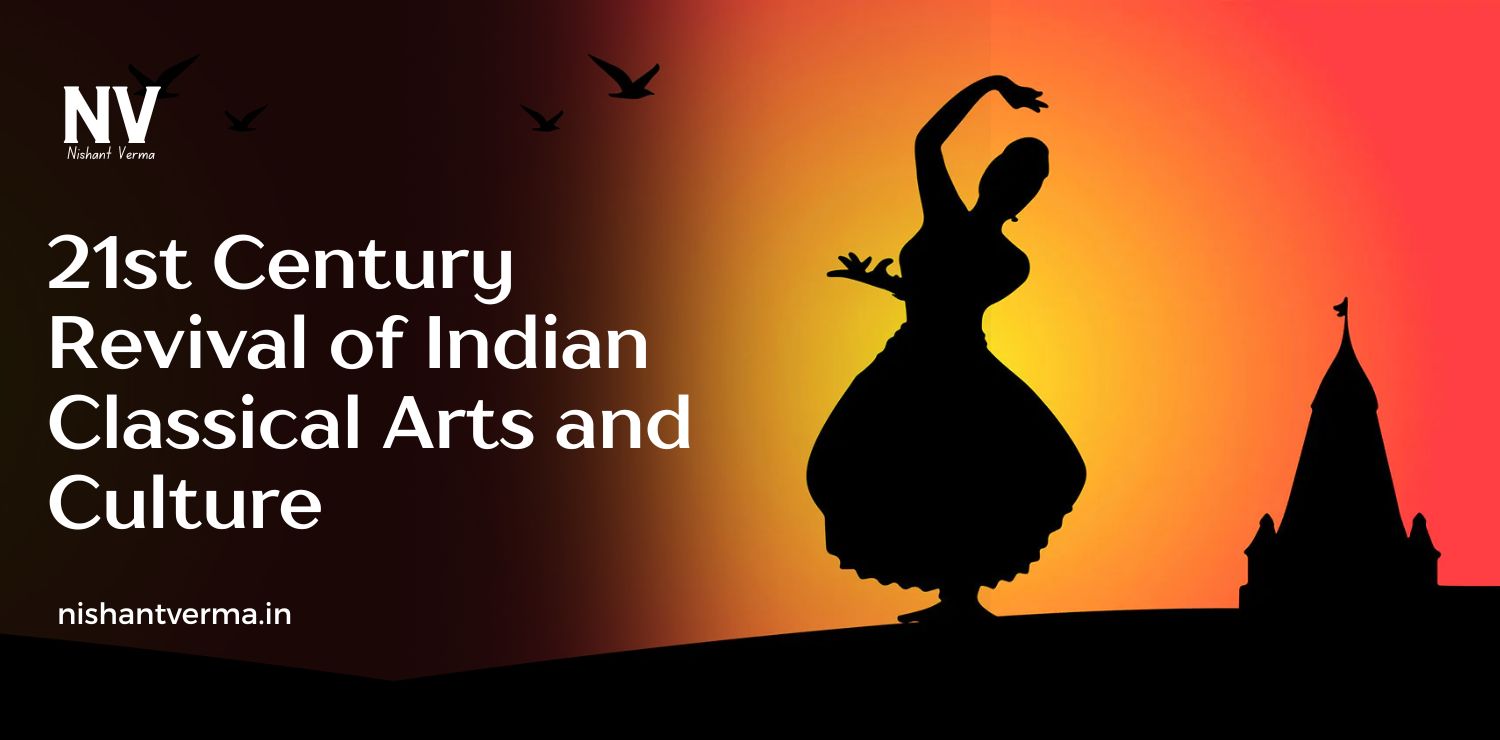The Indian National Congress (INC) is one of the oldest political parties in India. It played a crucial role in India’s struggle for independence from British rule. But after India gained independence in 1947, the role of the Indian National Congress did not end. Instead, the party became central to the political life of the new nation. Let’s take a look at how the INC shaped post-independence India and what its role has been in Indian politics since independence.
A Quick Look at the Indian National Congress (INC)
Before understanding the role of the INC after independence, it is important to know a little about the party’s history. The Indian National Congress was formed in 1885. Over the years, it became the most important political party fighting against British rule. Leaders like Mahatma Gandhi, Jawaharlal Nehru, Sardar Patel, and Subhas Chandra Bose were part of this movement. Their hard work and determination led to India’s independence on August 15, 1947.
After independence, the Indian National Congress remained a strong political force in the country. It played an important part in shaping the country’s policies, government, and the way the nation would progress.

The Indian National Congress and the Formation of a New India
After India became independent, the country needed to be rebuilt. It had just been freed from over 200 years of British rule. The INC took charge of the government, and Jawaharlal Nehru became the first Prime Minister of India. The party had to make important decisions to shape the future of the country.
One of the first things the INC did was to focus on creating a democratic government. In 1950, India adopted its Constitution, which laid down the rules for how the country should be governed. The INC believed in democracy, equality, and justice for all, which is why it made sure that the Constitution gave everyone equal rights.
The Indian National Congress and Social and Economic Development
After independence, India was a poor country with many challenges. The economy was not strong, and people lived in poverty. The INC knew that it needed to focus on improving the lives of ordinary people. Jawaharlal Nehru, as the Prime Minister, introduced many policies to help India grow.
- Land Reforms and Redistribution: One of the first things the INC did was to carry out land reforms. The government took land from big landowners and gave it to poor farmers. This helped many people get their own land and improve their lives.
- Five-Year Plans: The INC, under Nehru’s leadership, introduced the Five-Year Plans to guide India’s economic development. These plans focused on building industries, improving agriculture, and providing jobs for people.
- Science and Technology: Nehru also believed that India needed to be strong in science and technology. He encouraged the building of industries like steel plants, power stations, and the development of new technology. India’s space program and nuclear research also started during this time.
- Education and Healthcare: The INC worked on improving education and healthcare. Many schools and colleges were built, and the government worked to provide healthcare services to all Indians, especially in rural areas.

The Indian National Congress and Building Unity
India is a diverse country with many different cultures, languages, and religions. One of the main tasks of the INC after independence was to bring people together and build national unity. The party worked hard to ensure that all Indians, regardless of their background, were treated equally.
Sardar Vallabhbhai Patel, who was the Deputy Prime Minister and Home Minister, played an important role in uniting the many princely states into one India. He made sure that these states joined the Indian Union and did not remain independent.
The INC also worked on building a secular India, where people of all religions could live together peacefully. This was very important because India had a large Muslim population, and after independence, Pakistan was created as a separate nation for Muslims. The INC made sure that people of all faiths were treated with respect.
The Indian National Congress and Its Struggles
While the INC played a major role in building the country, it also faced challenges. There were times when the party faced criticism and struggled with issues. Here are some of the challenges the INC faced in post-independence India:
- Leadership Changes: After Jawaharlal Nehru passed away in 1964, the INC faced leadership challenges. Different leaders emerged, including Lal Bahadur Shastri and Indira Gandhi. Each leader had their own ideas, and the party sometimes faced internal disagreements.
- The Emergency (1975-1977): One of the most controversial events in Indian politics was the period known as “The Emergency” from 1975 to 1977. During this time, Prime Minister Indira Gandhi declared a state of emergency in the country, suspending many civil rights and cracking down on opposition. This was seen as a dark chapter in Indian democracy, and many people criticized the INC for its actions during this time.
- The Split in the Congress Party: In 1969, the Congress Party split into two groups – one led by Indira Gandhi and the other by her critics, such as K. Kamaraj. The split weakened the party for some time, but Indira Gandhi’s leadership helped bring it back together.
- The Rise of Opposition Parties: Over the years, other political parties like the Bharatiya Janata Party (BJP), Janata Party, and others began to challenge the INC’s dominance. The INC lost power in the 1977 elections to the Janata Party. However, it regained power in 1980 when Indira Gandhi came back to lead the country.
The Indian National Congress and Its Role in Modern Politics
In recent years, the Indian National Congress has not been as powerful as it was in the past. Other political parties, especially the BJP, have become more influential. However, the INC still remains a major political party in India and continues to play a significant role in the country’s politics.
The party has seen a decline in popularity in some states, but it still has strong support in certain regions, such as Kerala and Punjab. The INC has been in opposition to the ruling party on several occasions, but it continues to work towards the welfare of the people and remains a key player in shaping India’s political landscape.

The Legacy of the Indian National Congress
The Indian National Congress has had a long and rich history in India’s political life. After independence, it was the main force behind shaping the country’s development, governance, and democratic system. Many of India’s important policies and achievements can be traced back to the decisions made by the INC.
Today, even though the INC is no longer the dominant force it once was, its influence on Indian politics cannot be forgotten. The party’s legacy continues to inspire future generations of leaders, and it remains an important voice in the political landscape of India.
Conclusion: A Pillar of Indian Democracy
The Indian National Congress has played a major role in shaping post-independence Indian politics. From the time of independence in 1947, it worked hard to build the nation, create a democratic government, and ensure that all Indians were treated equally. Despite facing challenges, the INC continues to be an important political party in India.
The legacy of the INC is deeply tied to the history of India’s struggle for independence and the journey the country has taken since then. Whether in power or in opposition, the party’s commitment to democracy, justice, and the welfare of the people remains central to its mission.




